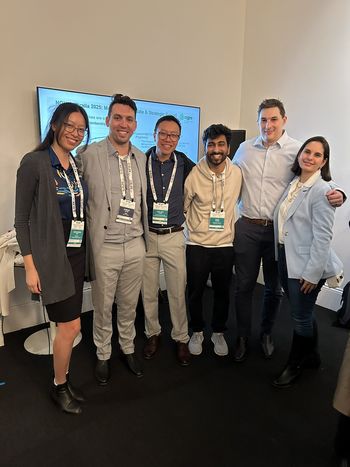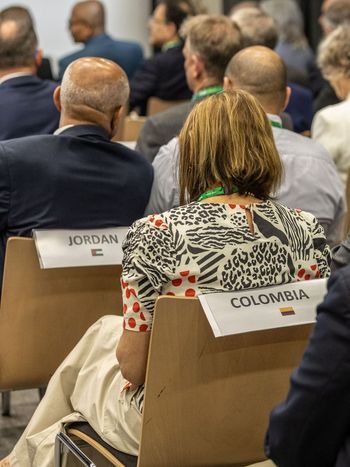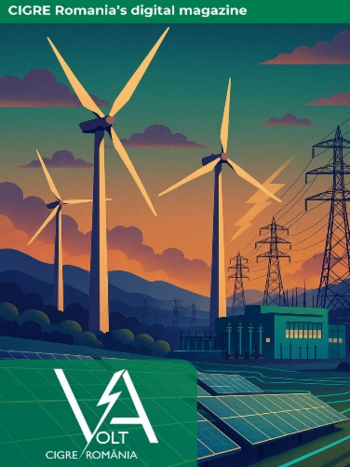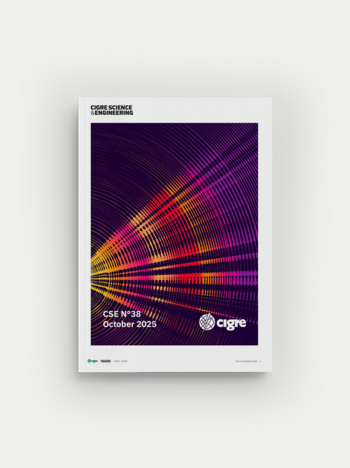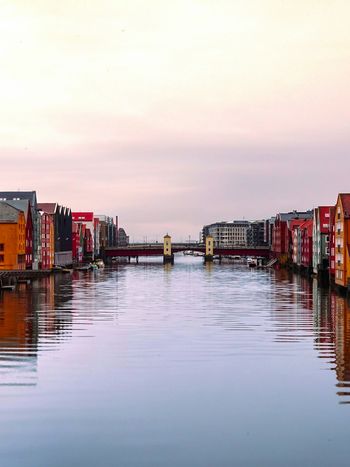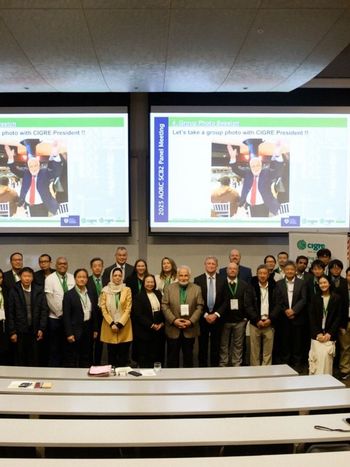CIGRE NGN France: Organizing a Hackathon to Engage the Youth into the Electrification and Energy Transition Challenges in France
For two days, October 10th and 11th, 2024, at the initiative of CIGRE NGN France in partnership with Réseau de Transport d'Électricité (RTE), the French TSO, fifty students worked on innovative ideas to implement the management of tomorrow's electrical networks. This experience is a first within the global CIGRE community.
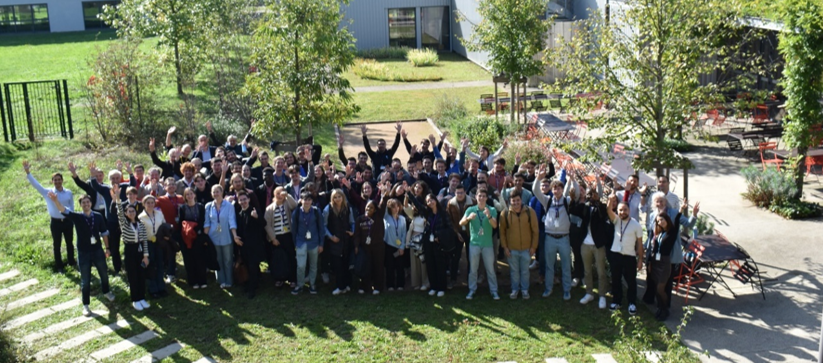
What happened?
On October 10th and 11th, 2024, the NGN group of CIGRE France, with financial support from CIGRE International, organized a "Hackathon" focused on electrical network management. For two days, around fifty Masters and Bachelor students in Electrical or Computer engineering from Paris, Lyon, and Grenoble gathered at Campus Transfo in Jonage and worked on proposing projects to adapt the electrical system for the energy transition planned for 2035.
Organizing the hackathon required meticulous planning and coordination over several months. NGN France teamed up with Convidencia (A Belgium company specializing in Hackathons) and RTE (the French TSO). They held regular meetings to outline the event's structure, define the challenges, secure sponsorships as well as experts, mentors and judges.
What is a Hackathon?
A hackathon, a term derived from "hack" and "marathon," is a collaborative and often intensive event where participants work together over a defined period, typically between 24 and 72 hours, to develop innovative solutions to specific problems. Hackathons can be organized around particular themes such as technology, health, education, or the environment.
The primary goal is to design, develop, and present a functional prototype within a limited time. Participants form teams and either receive a common challenge or choose a specific problem to solve. At the end of the event, teams present their projects to a jury.
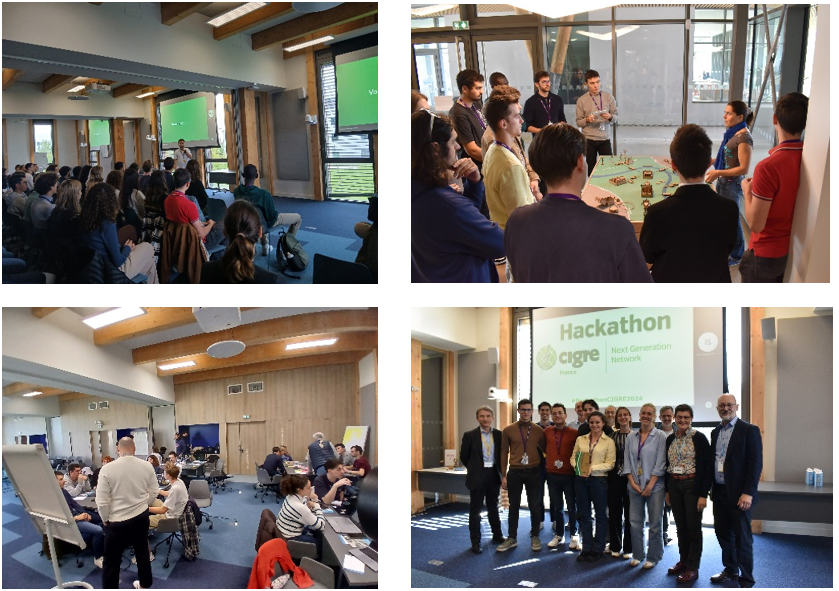
How was the hackathon organized?
Students were divided into teams of five, ensuring that no team included students from the same school. These groups were formed to promote diversity in age, gender, and educational backgrounds. Centered around the theme of managing and operating the electrical network of the future, the teams were tasked with exploring the contributions of new technologies.
They had to choose one of the following challenges:
- Optimizing Network Operations Amid High Volatility: Topics could include developing or improving monitoring systems and the role of AI in these areas.
- Ensuring Flexibility Needs of the New Electrical System: Possible topics included identifying and enhancing sources of flexibility (production, consumption, network installations) and their expected performance.
- Maintaining Electrotechnical Viability of Networks: Topics could involve developing installations with power electronics, such as DC links and production installations.
To enrich the hackathon experience and offer participants valuable insights and networking opportunities, NGN France reached out to industry leaders like Électricité de France (EDF), GE Vernova, Siemens Energy, and Supergrid Institute, who sent experts to mentor the students throughout the two-day competition.
On the second day, during the pitch sessions, students also had the opportunity to participate in a company forum, where they could directly discuss internship and job offers, as well as their career paths.
These sessions were designed to guide the students, offering insights into the latest technologies and industry practices. The mentors played a pivotal role in helping teams refine their ideas and develop viable solutions.
Evaluating and selecting the best ideas
A high-level jury composed of experts from CIGRE, RTE, Siemens, GE Vernova, and Schneider Electric was selected to evaluate the teams' pitches. The jury assessed the results based on the following criteria: adherence to the theme, originality and functionality of the project, and the quality and creativity of the pitch.
Although the jury wished to reward all groups for their commitment and motivation, they had to select three standout projects.
- The first prize was awarded to the project: “Creation of Electric Charging Stations for Hybrid Boats Powered by Renewable Energy”. The goal of this project is to find an economical solution to decarbonize maritime transport without overloading terrestrial electrical networks. The project cost was estimated based on the characteristics of fully electric container ships and hybrid boats expected to be available by 2035.
- Second place went to the project “Enerbox - Innovation at the Heart of your Homes” proposing a system of connected devices operated according to energy consumption demand and production offer.
- The third place went to “Energy Storage Based on Adiabatic Compressed Air”.
More information is provided on the NGN France website.
Feedback and learnings
The Hackathon organized by CIGRE NGN France marked a successful first edition, captivating the interest and enthusiasm of participants, including students, teachers, and jury members. The students tackled real-world challenges, developing concrete projects within a limited time and presenting their results to a professional jury. The palpable enthusiasm of the participants, driven by curiosity and passion, highlighted the event's impact. The diverse team composition fostered idea exchange and the creation of innovative solutions. Teachers praised the initiative, noting the dynamic and stimulating environment that allowed students to apply theoretical knowledge practically. The event significantly boosted CIGRE's appeal to young people, with over a hundred students joining CIGRE France, underscoring the association's role in promoting energy-related careers. Overall satisfaction was rated 4.6 out of 5, with 5 indicating ‘very satisfied.’
As a first event of its kind within CIGRE, the success of this hackathon was a testament to the dedication and collaborative spirit of everyone involved. The event not only fostered innovation and creativity but also strengthened the connection between academia and industry, inspiring the next generation of engineers to tackle the challenges of the energy transition.
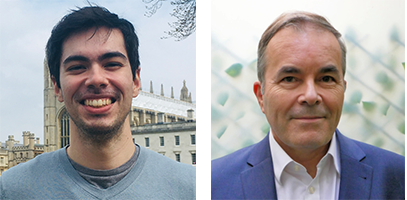
by Igor Silva - NGN France Executive for International and Academic Relations
& Gerald Sanchis - Secretary General of CIGRE France

